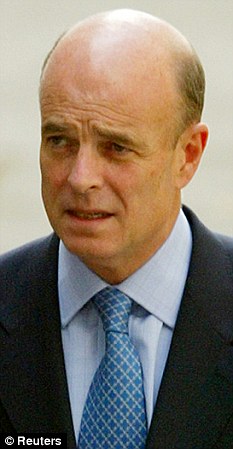The Guardian’s spook commentator extraordinaire, Richard Norton-Taylor, has reported that the current chair of the Intelligence and Security Committee (ISC) in the UK Parliament, Sir Malcolm Rifkind, wants the committee to finally grow a pair. Well, those weren’t quite the words used in the Grauny, but they certainly capture the gist.
If Rifkind’s stated intentions are realised, the new-look ISC might well provide real, meaningful and democratic oversight for the first time in the 100-year history of the three key UK spy agencies — MI5, MI6, and GCHQ, not to mention the defence intelligence staff, the joint intelligence committee and the new National Security Council .
 For many long years I have been discussing the woeful lack of real democratic oversight for the UK spies. The privately-convened ISC, the democratic fig-leaf established under the aegis of the 1994 Intelligence Services Act (ISA), is appointed by and answerable only to the Prime Minister, with a remit only to look at finance, policy and administration, and without the power to demand documents or to cross-examine witnesses under oath. Its annual reports are always heavily redacted and have become a joke amongst journalists.
For many long years I have been discussing the woeful lack of real democratic oversight for the UK spies. The privately-convened ISC, the democratic fig-leaf established under the aegis of the 1994 Intelligence Services Act (ISA), is appointed by and answerable only to the Prime Minister, with a remit only to look at finance, policy and administration, and without the power to demand documents or to cross-examine witnesses under oath. Its annual reports are always heavily redacted and have become a joke amongst journalists.
When the remit of the ISC was being drawn up in the early 1990s, the spooks were apoplectic that Parliament should have any form of oversight whatsoever. From their perspective, it was bad enough at that point that the agencies were put on a legal footing for the first time. Spy thinking then ran pretty much along the lines of “why on earth should they be answerable to a bunch of here-today, gone-tomorrow politicians, who were leaky as hell and gossiped to journalists all the time”?
So it says a great deal that the spooks breathed a huge, collective sigh of relief when the ISC remit was finally enshrined in law in 1994. They really had nothing to worry about. I remember, I was there at the time.
This has been borne out over the last 17 years. Time and again the spies have got away with telling barefaced lies to the ISC. Or at the very least being “economical with the truth”, to use one of their favourite phrases. Former DG of MI5, Sir Stephen Lander, has publicly said that “I blanche at some of the things I declined to tell the committee [ISC] early on…”. Not to mention the outright lies told to the ISC over the years about issues like whistleblower testimony, torture, and counter-terrorism measures.
But these new developments became yet more fascinating to me when I read that the current Chair of the ISC proposing these reforms is no less than Sir Malcolm Rifkind, crusty Tory grandee and former Conservative Foreign Minister in the mid-1990s.
For Sir Malcolm was the Foreign Secretary notionally in charge of MI6 when the intelligence officers, PT16 and PT16/B, hatched the ill-judged Gaddafi Plot when MI6 funded a rag-tag group of Islamic extremist terrorists in Libya to assassinate the Colonel, the key disclosure made by David Shayler when he blew the whistle way back in the late 1990s.
Obviously this assassination attempt was highly reckless in a very volatile part of the world; obviously it was unethical, and many innocent people were murdered in the attack; and obviously it failed, leading to the shaky rapprochement with Gaddafi over the last decade. Yet now we are seeing the use of similar tactics in the current Libyan war (this time more openly) with MI6 officers being sent to help the rebels in Benghazi and our government openly and shamelessly calling for régime change.
 But most importantly from a legal perspective, in 1996 the “Gaddafi Plot” MI6 apparently did not apply for prior written permission from Rifkind — which they were legally obliged to do under the terms of the 1994 Intelligence Services Act (the very act that also established the ISC). This is the fabled, but real, “licence to kill” — Section 7 of the ISA — which provides immunity to MI6 officers for illegal acts committed abroad, if they have the requisite ministerial permission.
But most importantly from a legal perspective, in 1996 the “Gaddafi Plot” MI6 apparently did not apply for prior written permission from Rifkind — which they were legally obliged to do under the terms of the 1994 Intelligence Services Act (the very act that also established the ISC). This is the fabled, but real, “licence to kill” — Section 7 of the ISA — which provides immunity to MI6 officers for illegal acts committed abroad, if they have the requisite ministerial permission.
At the time, Rifkind publicly stated that he had not been approached by MI6 to sanction the plot when the BBC Panorama programme conducted a special investigation, screened on 7 August 1997. Rifkind’s statement was also reported widely in the press over the years, including this New Statesman article by Mark Thomas in 2002.
That said, Rifkind himself wrote earlier this year in The Telegraph that help should now be given to the Benghazi “rebels” — many of whom appear to be members of the very same group that tried to assassinate Gaddafi with MI6’s help in 1996 — up to and including the provision of arms. Rifkind’s view of the legalities now appear to be somewhat more flexible, whatever his stated position was back in the 90s.
Of course, then he was notionally in charge of MI6 and would have to take the rap for any political fall-out. Now he can relax into the role of “quis custodiet ipsos custodes?”. Such a relief.
I shall be watching developments around Rifkind’s proposed reforms with interest.










